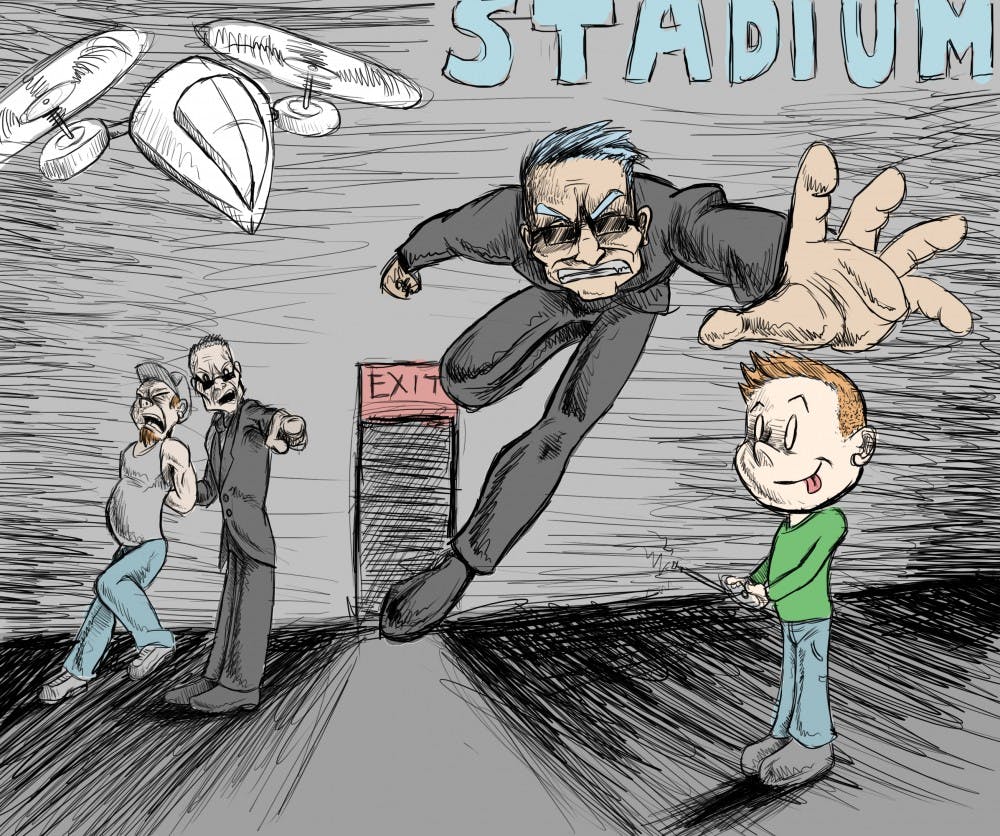Drones are a new technology with far-reaching implications. Those implications are still being processed at every level of government, but there are some clear-cut problems: Namely, drones going where flying objects should not be.
Orchard Park, a suburb of Buffalo, passed a town ordinance in July banning anyone from flying a drone within 200 yards of an event attended by 200 people or more. Orchard Park also happens to be home of the Buffalo Bills’ Ralph Wilson Stadium – which can pack in more than 70,000 fans.
In enacting the ban, Orchard Park became one of the first NFL communities to do so.
These measures are appropriate and as Orchard Park Mayor Jo Ann Litwin Clinton pointed out, the law can always be amended as the technology advances.
Part of the problem comes from the freely available nature of drones. Anyone can fly one, and so there’s no real control over the craft. As such, pilots may commit aerial mistakes that cause crashes, either from poor piloting or simply forgetting to recharge the battery.
Incidents have already occurred to ground such fears in reality. A drone crashed just outside the University of Kentucky’s football stadium during game this month. Another drone crashed into a section of empty seating at the US Open in New York City. Various other sporting events have had problems with airborne visitors.
More serious, yet slightly less likely, concerns have been voiced about terrorism. The idea of a person piloting a drone laden with a dangerous package, like a homemade bomb, into a stadium packed with people is certainly a valid concern – and one only likely to grow in danger as technology advances and drones’ carrying capacity increases. Especially in our post-9/11 world, such concerns have to be addressed.
Yet a ban in place does little to deter actual encroachment of such drones. Identifying the pilot of drones is proving to be tricky. Were an actual terrorist attack to occur via drone, there remains little in the way of defense beyond preempting the attack. Methods of jamming the drones seems to be a much safer route for defense as opposed to physically shooting the drones down. No one wants to see miniature anti-aircraft emplacements on every stadium in the United States.
The positive possibilities of drones remain endless, though. While concerns of larger drones killing people if they fell from the sky remain well founded, there exists many uses. Licensed or trained drone pilots could go along way toward alleviating these concerns. Promotional goods could be distributed via drones perhaps into designated drop zones.
For now though, these fantasies remain just that: fantasies. Orchard Park took the right measure in banning drones near large events. Uncontrolled private usage creates dangers to the public. If similar measures are not taken across the United States, a poorly piloted drone will cause some damage or injury.
That such laws do not become entrenched remains vital. Drones are the future, of everything from taking pictures to commercial transportation. The sky is the literal limit, and new and unexpected uses will continue to appear. New laws will have to be created to match the expansion though. Questions arise from new situations. A man in Kentucky who shot down a drone that was flying by his house has created a controversy over what constitutes invasion of privacy. New cases will certainly emerge.
We should embrace drones. Be wary of the eyes in the sky, but their uses will only grow with time.
The editorial board can be reached at editorial@ubspectrum.com.





